Prince Harry accused of boasting about Taliban kills to get ‘security at taxpayer’s expense’
>
Prince Harry has been accused of revealing the number of Taliban soldiers he killed as a way to gain additional security at taxpayer expense.
The Duke of Sussex is locked in an ongoing legal battle with the Home Office over his UK security team.
Now, critics have suggested that Harry may have thought it would be to his case to detail his exploits during two tours in Afghanistan.
In his memoir, Spare, Harry detailed “six missions that ended in the elimination of human life,” noting that he and his superiors “considered them justified.”
The decision to include such graphic details in his book sparked widespread outrage and even calls in Afghanistan for Harry to stand trial.
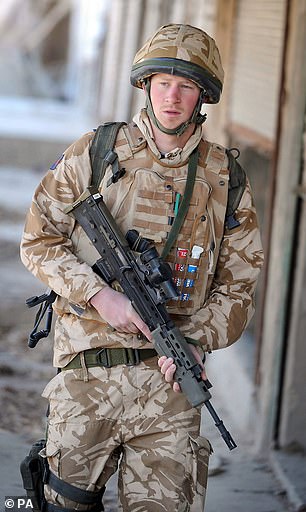
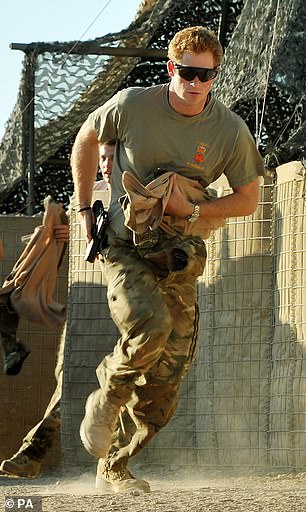
Prince Harry on patrol in the deserted city of Garmsir, southern Afghanistan, in 2008 on the left, and during his deployment in 2012 on the right
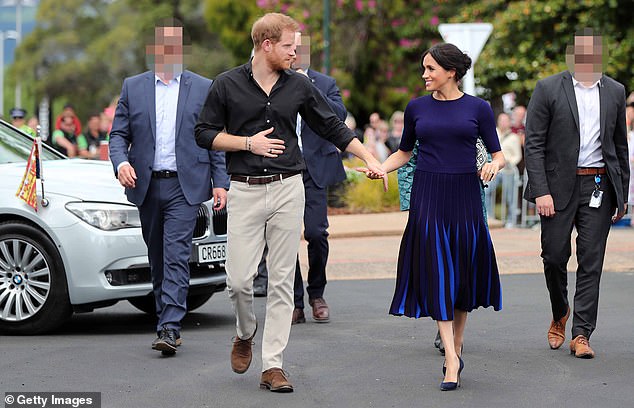
The Duke is locked in an ongoing legal battle with the Home Office over his safety in the UK. Pictured: Prince Harry and Meghan Markle in Rotorua, New Zealand, in 2018
Dr. Alan Mendoza, from the Henry Jackson Society think tank, said Sun the comments seem ‘calculated’.
Prince Harry’s claims about the number of Taliban he may have killed, whether true or not, seem calculated to achieve only one goal: to gain additional security for himself at the expense of UK taxpayers.
“All it has managed to do is allow a despicable regime to have a gratuitous PR coup in response to its poorly framed comments.”
Mawlavi Mohammad Qasim, the Taliban’s media director, tried to capitalize on the details of Harry’s memoirs, suggesting that they “exposed the true face of the Western world.”
Royal expert Richard Fitzwilliams previously told MailOnline that Harry’s admission could be seen as a ploy “to get the security he feels he needs when he visits Britain.”
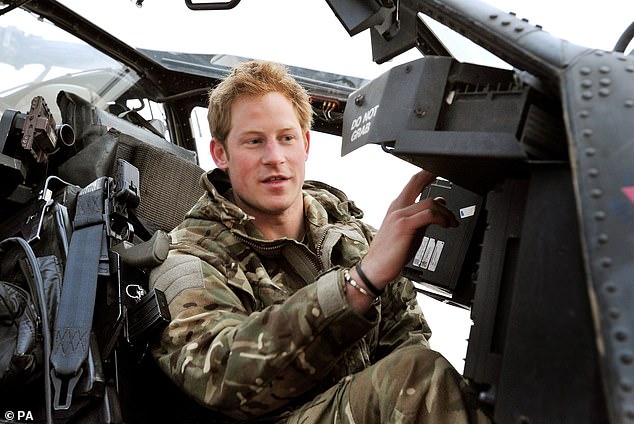
Now, questions are being asked as to whether Harry thought it would be to his case to detail his exploits during two tours in Afghanistan. Pictured: Prince Harry doing pre-flight checks early in the morning in the cockpit of a helicopter in 2012
It occurred to me that he might be using this highly unusual admission to put pressure on the Home Office to grant him what he wants, either to pay for 24-hour police protection when he’s here or, alternatively, to be favorably assessed. for the taxpayer-funded security he lost when he and Meghan stepped down as senior royals.
“He is challenging the Home Office in court over this issue at the moment, the threat level is assessed by the Royalty and Public Figures Executive Committee (Ravec) which reports to the Home Office.”
“It could now be credibly claimed that there is a new threat.”
The latest update on his legal challenge against the Home Office took place in July, when Harry won a bid to sue in the High Court against the department.
The challenge refers to the February 2020 decision of the Executive Committee for the Protection of Royalty and Public Figures (Ravec) on their safety.
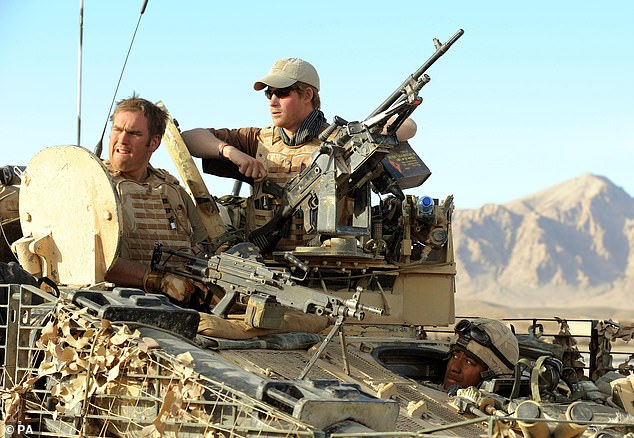
The decision to include such graphic details in his book sparked widespread outrage and even calls in Afghanistan for Harry to stand trial. Pictured: Harry sitting in an armored vehicle in Helmand province in February 2008
At the time, he was told that he would no longer receive the “same degree” of personal protection security when he visited.
The prince’s frank admissions have also made him dangerous to Westerners who remained in Kabul. Animal charity chief Pen Farthing revealed on Friday night that he had been forced to flee the city for fear of retaliatory attacks.
Former Army chief Colonel Richard Kemp also warned that Harry’s admissions could “provoke” pro-Taliban sympathizers “to try to get revenge” on him and possibly “incite some people to attempt an attack on British soldiers at any time.” part of the world”.
His revelations marked the first time Harry specified the number of insurgents he personally killed during his time in Afghanistan, where he was in both 2007-8 and 2012 and flew an Apache attack helicopter during his second tour.
In the memoir, Harry acknowledged that many of his fellow soldiers could not accurately say how many people they killed during the war.
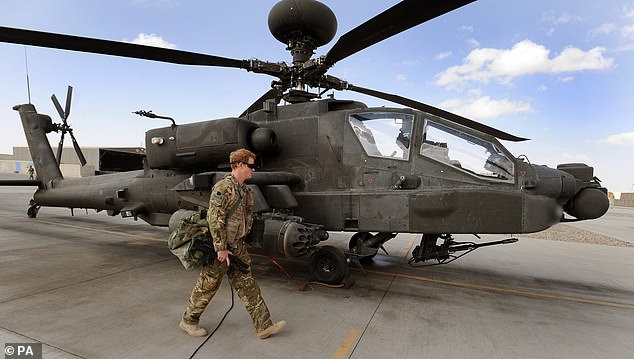
Prince Harry pictured next to an Apache helicopter on October 31, 2012. He revealed in his memoir that all the deaths were recorded on video, which was later played back and analysed.
But he said he made it a priority to keep score from the moment he arrived, to stay accountable and to keep his conscience clear.
The prince was first posted to Helmand province as a forward air controller in 2007, but his first tour of duty was cut short when an Australian magazine mistakenly broke a media embargo.
He returned in 2012 with the Ministry of Defense publicizing his second deployment on the understanding that the media would allow him to continue the job at hand.
After learning to fly Apache helicopters, Harry was posted to Camp Bastion in southern Afghanistan in 2012, where he stayed for 20 weeks.
During his 2012 tour, Harry helped provide helicopter support to the International Security Assistance Force and Afghan forces operating throughout Helmand province.
Based at Camp Bastion, the 662 Squadron Army Air Corps, to which he belonged, flew over a hundred deliberate missions during 2,500 flight hours, providing surveillance, deterrence and, when required, close combat capabilities, as well as security tasks. escort for other aircraft. .
Captain Wales qualified as a co-pilot gunner in February 2012.
He was posted to the 3rd Army Air Corps Regiment, part of the 16th Air Assault Brigade, to gain more flying experience and operate the Apache in a series of exercises before deploying to Afghanistan in September 2012.
Harry trained to fly in the front seat as a mission or aircraft commander, but most of the time he operated the Apache’s sights, sensors, and weapons systems.
Upon his return to the UK, he was praised by colleagues and superiors for being “at the top of his game” during the tour.
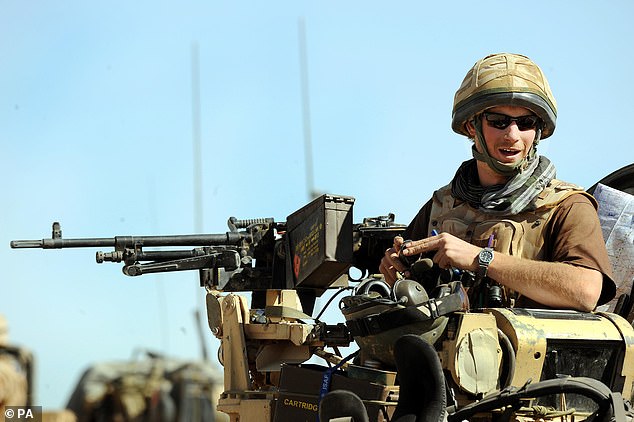
The Duke of Sussex pictured in Helmand Province during his first tour of duty in 2008
He received no special treatment and worked, ate and slept in the same basic conditions as the other pilots. It was, in his own words, “as normal as possible.” I’m one of the guys, they don’t treat me any different.’
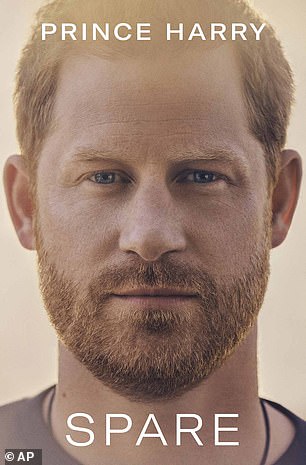
Spare will hit stores on January 10.
The Taliban have already mocked Harry and described him as a “loud-mouthed loser” for his revelation.
In the summer of 2021, the Taliban seized control of Afghanistan with a lightning offensive that swept across the country in a matter of weeks, toppling the Western-backed government set up by the US, UK and their allies.
Government leaders fled the country as Western coalition forces withdrew, culminating in the collapse of the Afghan army and the capture of Kabul by the Taliban on August 15, 2021.
Despite promising a more progressive regime than when they were last in power in 2001, the Taliban have eroded the rights of women and minority groups in the country, most recently by banning women from attending university, a move which drew fierce condemnation from the international community.
